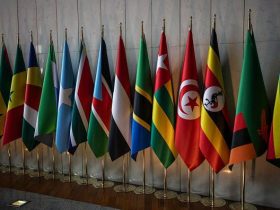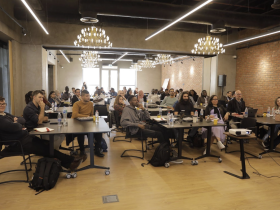Apex court to right a legislative wrong?
Thousands of South Africans continue to be stripped of their citizenship, many if not most without knowing it. Will the apex court finally put a stop to this?
In August 2021, application was made to the Pretoria high court for an order declaring Section 6(1) of the Citizenship Act to be constitutionally invalid. Section 6(1) provides (as did its apartheid predecessor) that South Africans will automatically cease to be South African citizens if they voluntarily obtain the citizenship of a second country.
The applicant argued that Section 6(1) of the Act violates the fundamental right enshrined in Section 20 of the Bill of Rights in the Constitution, that “No citizen may be deprived of citizenship.” Citizens have a fundamental right not to be “deprived” of their citizenship.
Moreover, Section 6(1) of the Act infringes on several other fundamental rights reserved to South African citizens. These include the right to reside in South Africa, the right to choose any occupation, the right to vote and the right to stand for public office. All of these depend on holding South African citizenship.
The Citizenship Act says that, before acquiring any additional citizenship, South Africans must apply to the Minister of Home Affairs for permission to retain their (constitutionally-entrenched) South African citizenship. The Minister may grant or deny this permission in his sole discretion, a provision in flagrant violation of the Rule of Law, a foundation of the entire Constitution.
The applicant in the case contended that many South Africans, if not most, do not know that in terms of Section 6(1) of the Act they automatically lose their South African citizenship if they do not first apply for and actually obtain the Minister’s discretionary permission to retain it.
The Pretoria high court (Judge Jody Kollapen) however, upheld Section 6(1).
The judge referred to the Constitution’s Founding Provisions about citizenship. These are: There is a common South African citizenship. All citizens are equally entitled to the rights, privileges and benefits of citizenship, and are equally subject to its duties and responsibilities, and that legislation must provide for the acquisition, “loss” and restoration of citizenship. That legislation is the Citizenship Act, he said.
The judge reasoned that the fundamental right in the Bill of Rights that no citizen may be “deprived” of citizenship was merely aimed at prohibiting statelessness.
In contrast, he said, the Constitution’s Founding Provision that legislation must inter alia provide for “loss” of citizenship carries no risk of statelessness, because in terms of Section 6(1) a South African ceases to be a citizen only when acquiring another country’s citizenship.
The judge interpreted Section 6(1) of the Citizenship Act as not amounting to a citizen being “deprived” of citizenship in violation of the Bill of Rights, but as being a mere “loss” of citizenship, which, he said, is a forfeiture that does not have to meet the justifiability requirements of the Bill of Rights.
With the greatest respect, that analysis was superficial and flawed. The judge’s finding that the Bill of Rights prohibition against being “deprived” of citizenship was to prevent “statelessness” does not address the fact that another section of the Citizenship Act (Section 8(2)) expressly authorises the Minister to “deprive” a South African citizen who “also has the citizenship of any other country” of their South African citizenship (as the judge himself noted but without explaining the anomaly), in the public interest or if they have been sentenced for an offence to imprisonment for 12 months or more.
The applicant contended that many citizens were unaware of the Act and had lost their citizenship without knowing it. An online survey it conducted among South Africans who lost their citizenship was offered to prove this. It asked whether they were aware of the Act and whether they had intended to lose their citizenship by applying for additional citizenship. An overwhelming majority of responders were both unaware of the Act and had never intended to forego their SA citizenship.
Judge Kollapen brushed this aside. He surmised, without substantiation, that those citizens involved in migration to other countries with the possibility of acquiring citizenship there “must surely” be expected to acquaint themselves with the law in that area of activity. This assumes that those seeking a second passport to facilitate easier travel for example, will somehow axiomatically be involved in the idea of migration.
The judge declared that “lack of knowledge of the law cannot sustain an argument that the law is unconstitutional” and relied on the discredited notion that ignorantia juris neminem excusat (“ignorance of the law excuses no one”). Yet this dubious principle has never been generally applied. The courts confirm that persons cannot be assumed to have renounced their legal rights unless they specifically intended to part with them.
Nevertheless, Judge Kollapen dismissed the application to have Section 6(1) of the Act declared constitutionally invalid. The judge also dismissed an application for leave to appeal, despite the facts that the significance of this question and the many thousands of lives affected by it are compelling reasons why an appeal should be heard.
The Supreme Court of Appeal subsequently granted leave to appeal, and the appeal will reportedly be heard by that court on 23 February 2023.
If the Supreme Court of Appeal makes an order setting aside Judge Kollapen’s decision and declaring Section 6(1) of the Citizenship Act constitutionally invalid, that order of constitutional invalidity will subsequently have to be confirmed by the Constitutional Court. If, however, the Supreme Court of Appeal upholds Judge Kollapen’s decision, an appeal could be made to the Constitutional Court.
In the meanwhile, mostly without knowing it, many thousands more will lose their South African citizenship and all the entrenched rights that flow from it.
Many countries permit multiple citizenship. This is because, among other things, it allows its citizens to travel more freely and to take better advantage of employment, commercial, health, educational and other opportunities. Two decades ago, Australia realised the great value of multiple citizenship for Australia and repealed a law stipulating that Australians lose their citizenship if they acquire another, even though Australia could have continued stripping Australians of their citizenship, because for them citizenship is not constitutionally an expressly enshrined right the way it is in South Africa.
























Leave a Reply